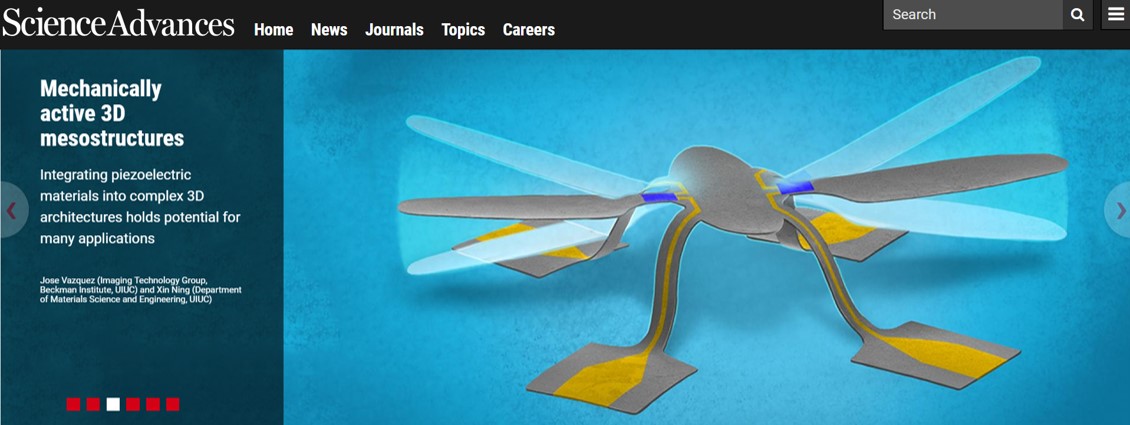Congratulations, Dr. Chaudhary!
Author: ewoldt@illinois.edu
Rheology short course June 11-13 in Palo Alto, CA
Join us at an upcoming rheology short course in Palo Alto, CA June 11-13.
Prof. Ewoldt with join Profs. Macosko (Minnesota), Fuller (Stanford), McKinley (MIT), and Zia (Stanford) to deliver this 3-day introductory course on rheology on Stanford University’s campus.
Great for practicing engineers, scientists, and technicians. Faculty and student attendance is also encouraged with an academic discount.
Piyush Singh successfully defends his Ph.D.
Congratulations, Dr. Singh!
Nature highlights our collaborative work in JACS
Nature posted a Research Highlight of our collaborative work with Chemistry @ Illinois Prof. Steve Zimmerman and others.
Our work in JACS reports a new class of polymeric materials that rapidly degrade with an acid trigger.
The Ewoldt group contributions involved rheological measurement of degrading mechanical properties and mathematical modeling to infer molecular reaction rates from rheology.
The rapid self-degradation was found to be governed by an autocatalytic reaction, resulting in a governing differential equation known as the “logistic equation” (interestingly, this is also used for some human population growth models).
Miller et al., “Acid-triggered, acid-generating, and self-amplifying degradable polymers,”
Journal of the American Chemical Society (2019).
http://doi.org/10.1021/jacs.8b07705

New video for Gallery of Fluid Motion: thixotropy visualized
Samya Sen lead the making of our video entry to the 2018 Gallery of Fluid Motion, part of the APS Division of Fluid Dynamics Annual Meeting, to be held in Atlanta in November 2018.
We’ve posted it to our YouTube channel, shown here:
New paper in Science Advances
Congratulations to Rebecca! Our paper “Mechanically active materials in three-dimensional mesostructures,” in collaboration with Xin Ning, John Rogers, et al., is now online in Science Advances, and highlighted as a featured article.
The paper is available here: https://doi.org/10.1126/sciadv.aat8313
The key idea is to combine advanced manufacturing and mechanics to integrate multiple, independently addressable piezoelectric thin-film actuators into complex, 3D mesostructures. Among the many possible uses, in this work we demonstrate the ability to measure viscosity and density of surrounding fluids.

Big paper published on medium-amplitude rheology (Journal of Rheology)
Congratulations to Luca on his masterpiece work, just published in the Journal of Rheology:
“Continuous relaxation spectra for constitutive models in medium-amplitude oscillatory shear”
Martinetti, L., J. M. Soulages, and R. H. Ewoldt, Journal of Rheology, 62(5), 1271–1298
The work is a tour de force of new theoretical derivations, first-of-their-kind model fitting to experiments, and new molecular insights for a transient polymer network.
We employ the concept of a parameterized continuous spectrum, which can dramatically reduce the number of fit parameters of a model, resulting in a model that is more credible, and with more certainty on parameter values for inferring molecular information.
The framework can be applied generally to a vast library of existing mathematical models (Corotational, Giesekus, etc.). The work demonstrates the potential of using weakly nonlinear oscillations, a developing area of characterization also known as medium-amplitude oscillatory shear (MAOS), to understand complex fluid and soft matter rheology.
Journal of Mechanical Design Editors’ Choice Award
Congratulations to Jonathon and our collaborators Yong-Hoon Lee and James Allison (UIUC, ISE) on receiving a 2017 Journal of Mechanical Design Editors’ Choice Award – Honorable Mention.
The award was given in Quebec City, Canada, at the annual ASME International Design Engineering Technical Conference.
Our paper (DOI link) describes design optimization with viscous Newtonian fluids and arbitrary surface shapes for reducing friction in sliding contacts. The approach goes beyond simple textures considered in the literature (dimples, wedges, etc.) and instead considers an arbitrary continuous texture geometry represented using a two-dimensional cubic spline interpolation. This results in significant improvement in performance with the best designs, which are textures resembling a spiral blade.
The results have implications for thrust bearings, hydraulic systems, and anywhere that textured surfaces can be used to reduce friction and improve energy efficiency in engineered systems.
Collaboration with Moore group published in ACS Macro Letters
Congratulations to Arif on our recent collaborative paper with Liu et al. “Dynamic Remodeling of Covalent Networks via Ring-Opening Metathesis Polymerization” DOI link
Led by the Moore Group (UIUC, Chemistry), we report a fascinating system which reversibly changes from solid polymer network to liquid monomers, and back again, controlled by temperature. Rheology helps to characterize and understand the reversible process.
The ability to “remodel” a material is used throughout biology for resiliency and maintenance. Our work here represents a promising candidate for a synthetic engineered material that can remodel itself.
Samya Sen awarded PPG-MRL assistantship
Samya Sen has been awarded a PPG-MRL Graduate Research Assistantship. This is a competitive award that will support his research goals to understand how rheologically-complex fluids stick, splash, and coat surfaces upon impact.
Read more about this year’s awardees.
Congratulations, Samya!
